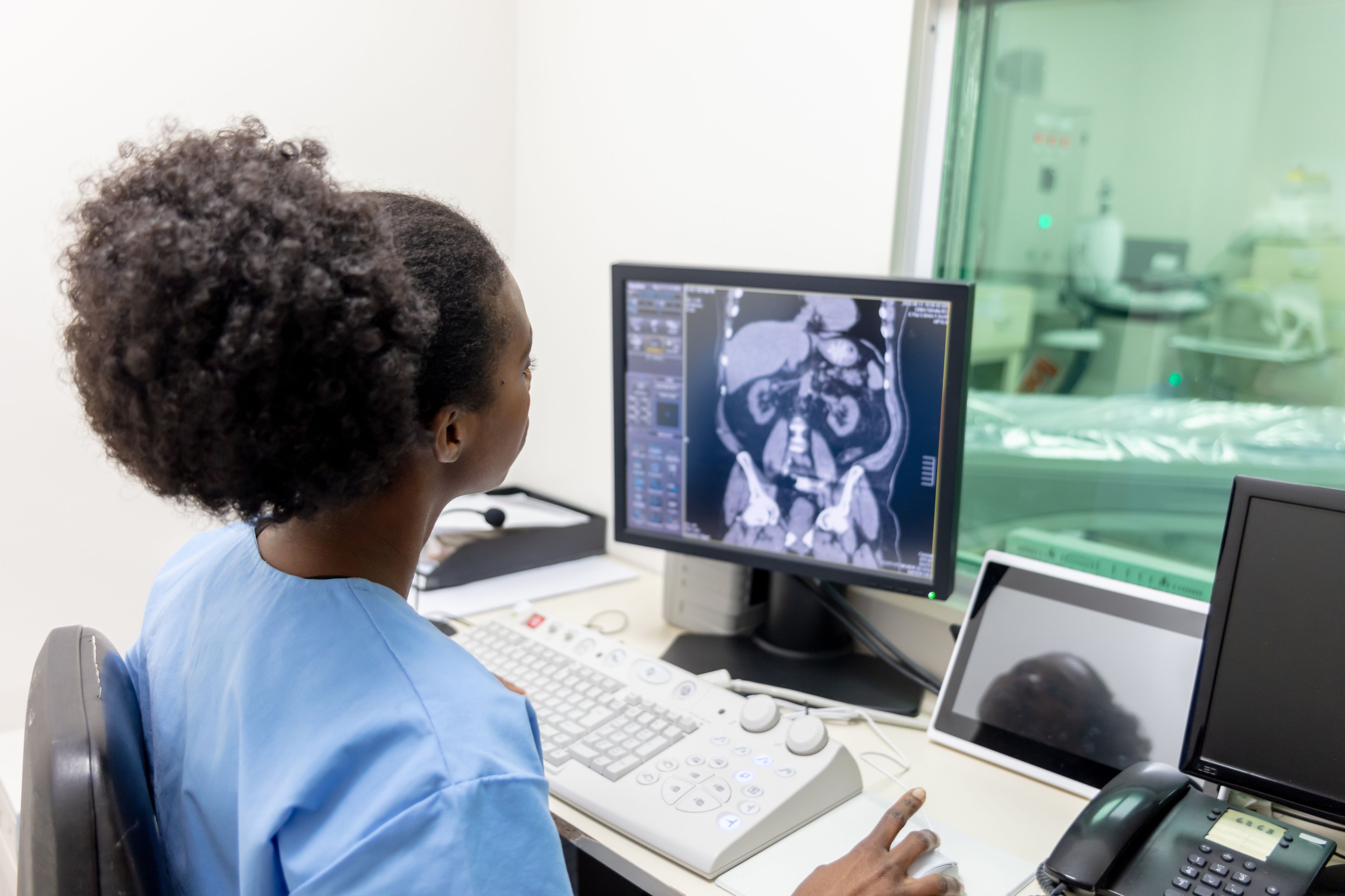Many industry experts believe that the robotic surgery market is on the cusp of a dramatic expansion. For example, a recent report from marketsandmarkets.com predicts that the market will grow from $4.9 billion in 2016 to nearly $13 billion by 2021. Naturally, a market of that size has attracted the attention of several companies that want to get in on the action.
However, only a few companies have succeeded in bringing a robotic surgery system to market thus far. Mazor Robotics (MZOR +0.00%) is one of those few businesses. The company currently boasts two surgical systems for sale -- the Renaissance and Mazor X -- both of which help surgeons perform spine and brain procedures. With a worldwide install base of more than 150 systems, Mazor has established itself as the lead husky in its field. But with lots of competition on the way, should investors be fearful?

Image source: Mazor Robotics.
The competition
Your first instinct might be to assume that Intuitive Surgical (ISRG 1.49%) is the company's main opponent, since it is the pioneer in the use of robots during surgery. However, Intuitive's da Vinci is primarily designed for use in gynecological, urological, and general surgery procedures, not procedures involving bones. Since Mazor's products are exclusively focused on fixing problems with the spine and brain, there actually isn't any direct competition between the two -- at least not yet.
Instead of Intuitive, Mazor's investors need to keep their eyes trained on companies like Zimmer Biomet Holdings (ZBH 1.03%) and Globus Medical (GMED 0.89%), both of which are focused on developing robotic products that could be used for spine and brain surgeries. That's a much more direct competitive threat.

Image source: Zimmer Biomet.
Zimmer Biomet, in particular, made a big move into the space last year through its acquisition of MedTech SA. Medtech was the original developer of the ROSA robot, which is a robotic arm that has received regulatory approval in both the U.S. and EU for spine and brain surgeries. Just like Mazor's products, ROSA is designed to help surgeons increase their accuracy and precision with screw and implant placement. So far, a few dozen ROSA systems have been sold and are actively being used.
Globus Medical is a little bit further behind Zimmer with its robotic surgical system rollout, but that could be changing soon. The company's Excelsius GPS system is similarly focused on spine and brain procedures and has already received regulatory clearance in Europe. However, the company suffered a setback earlier this year after the FDA rejected its 510(k) application. Globus is still committed to moving forward with the product in the U.S. as soon as possible and is in active discussions with the agency to make that happen before the end of the year.
Other potential competitors include Stryker Corporation, which entered the robotic surgery arena in 2013 with its buyout of Mako Surgical. While the Mako is primarily used for hip and knee procedures, the company has a lot of direct experience with diseases of the bone. That could go a long way toward helping it enter the spine and brain markets if it chooses.
It would also be a mistake to completely rule out Intuitive Surgical as a competitor. Intuitive certainly has the resources, technology, and footprint to make inroads in the spine and brain markets down the road if it wanted. You could also potentially add NuVasive or Johnson & Johnson and Alphabet's Verb Surgical to the mix, too.
Add it all up, and it is likely that surgeons will have at least three different vendors to choose from by the end of the year -- and possibly even more over time. That means that the competition between these systems is about to get very serious.
Is Mazor doomed?
Given all of the potential competition from these well-funded companies, it might be natural to assume that Mazor is toast. However, I can think of at least three reasons why investors should still stick with Mazor from here.
First, there's no doubt that Mazor is the first mover and top dog in its field. The company's products have been used by hundreds of surgeons, and more than 24,000 procedures have been performed since its launch. In addition, more than 40 peer-reviewed articles have been published touting the benefits of Mazor's systems. This battle-tested history should help to give it a leg up on winning over new doctors.
Next, the company's partnership with Medtronic (MDT 0.24%) is another major advantage. Medtronic is one of the largest medical device companies in the world, and it has developed deep relationships with the surgical community over the last few decades. Adding Medtronic's brand name and marketing muscle should greatly help with the commercialization of the Mazor X and Renaissance system.
Finally, the market for robotic surgery systems could grow so rapidly that it could support multiple winners. After all, Mazor estimates that its products have an addressable market opportunity of about 500,000 procedures each year in the U.S. alone. For context, last year the company system was only used in about 5,000 procedures in the U.S. That hints that there is a ton of growth runway left, even if the playing field gets a little bit more crowded.
I think that the company's leadership position and growth potential more than compensate investors for the risks they are taking by sticking with the company. Still, there's no doubt that the competition for robotic surgical systems is about to get fierce.








